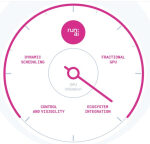
Credit: VentureBeat, created with MidJournet
Join our daily and weekly newsletters for the latest updates and exclusive content on industry-leading AI coverage. Learn More
In the tech world, we like to label periods as the year of (insert milestone here). This past year (2024) was a year of broader experimentation in AI and, of course, agentic use cases.
As 2025 opens, VentureBeat spoke to industry analysts and IT decision-makers to see what the year might bring. For many, 2025 will be the year of agents, when all the pilot programs, experiments and new AI use cases converge into something resembling a return on investment.
In addition, the experts VentureBeat spoke to see 2025 as the year AI orchestration will play a bigger role in the enterprise. Organizations plan to make management of AI applications and agents much more straightforward.
Here are some themes we expect to see more in 2025.
More deployment
Swami Sivasubramanian, VP of AI and data at AWS, said 2025 will be the year of productivity, because executives will begin to care more about the costs of using AI. Proving productivity becomes essential, and this begins with understanding how multiple agents, both inside internal workflows and those that touch other services, can be made better.
“In an agentic world, workflows are going to be reimagined, and you start asking about accuracy and how do you achieve five times productivity,” he said.
Palantir chief architect Akshay Krishnaswamy agreed that decision-makers, especially those outside of the technology cluster, are beginning to get antsy about seeing the impact these AI investments will have on their businesses.
“People are rightfully fatigued about more sandboxing, because it’s off the back of the whole data and analytics journey of the past 10 years, where people also did a ton of experimentation,” said Krishnaswamy. “If you’re an executive, you’re like, ‘this has to be the year I actually start to see some ROI, right?’”
An explosion of orchestration frameworks
Going into 2025, there is a greater need to create infrastructure to manage multiple AI agents and applications.
Chris Jangareddy, a managing director at Deloitte, told VentureBeat that next year will be very exciting. Competitors will face LangChain and other AI companies looking to offer their own orchestration platforms.
“A lot of tools are catching up to LangChain, and we’re going to see more new players come up,” Jangareddy said. “Even before organizations can think about multiagents, they’re already thinking about orchestration so everyone is building that layer.”
Many AI developers turned to LangChain to start building out a traffic system for AI applications. But LangChain isn’t always the best solution for some companies, which is where some new options including Microsoft’s Magentic, or comparable companies l





